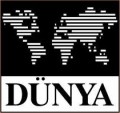Foreign Caregiver Shakes the Budget Milliyet
Source: Milliyet
The dollar's record has entered between families and babysitters like a 'black cat'. Families either fix the rate with babysitters or, if they are very satisfied with the babysitter, they pay at the current rate without eating or drinking.
In Turkey, nearly 15,000 registered and many more unregistered foreign 'babysitters' or 'helpers' are employed. There are also companies providing babysitters for children and patients that operate unregistered and at very high rates, outside of those affiliated with the Ministry of Labor. These babysitters, especially from Turkmenistan, Uzbekistan, the Philippines, Russia, and Georgia, negotiate their fees in dollars. Periods when the exchange rate rises are the biggest nightmare for families, as they face significant increases month by month.
'They ask on the net'
Families and companies accustomed to this situation fix the rate at the level of the exchange rate on the day the babysitter is hired. For other families, however, everything is very complicated; some even write their problems related to the 'exchange rate' on certain websites and seek 'agreement' ideas from families who know the subject. In this case, generally, either the babysitter is satisfied and stays without any issues, or the family, if very satisfied with the babysitter, accepts the increase in the exchange rate to avoid losing them.
Vural Şeker, President of the Istanbul Private Employment Agencies Association, stated that families are anxious in the face of the rising exchange rate and that the 'undetermined exchange rate' issue remains unresolved during such times.
'We work in TL, let's pay in TL'
Belgin Gündüz from Erenköy Consultancy stated that families are sensitive because they entrust their children and family members in need of care, and they are willing to pay any amount for a good babysitter. She emphasized that payments should be determined in TL by law. Gündüz explained that they have started to work in TL due to these situations, saying, "You earn in TL in this country, so you want to make payments in this way. Otherwise, the dollar and euro keep rising, but it is hard to witness a decrease. We accept our employees this way. The lowest wage is between 2000-2500 lira."
Solution is with Turkish babysitters
Şeker stated that families want to know how much they will pay at the end of each month, calculated based on the exchange rate at the time the babysitter was hired, along with annual raises. He emphasized that the exchange rate does not drop significantly after a certain rise, thus not causing significant losses for the babysitter. Şeker said, "Otherwise, families who do not know what to do at the end of the month consider changing their working style and switching from live-in staff to daytime and Turkish staff."
There is a raise, no exchange rate difference
Employers who want to agree on a common ground fix the dollar at a certain rate but try to avoid losing the babysitter by making a slight raise. This is a solution frequently resorted to by families. The monthly wages paid to babysitters vary according to the job description and even nationalities. Uzbek, Turkmen, Georgian, and Moldovan babysitters working 'daytime' receive monthly wages between 700-800 dollars. Filipino babysitters, on the other hand, work for monthly wages between 1000-1500 dollars. According to the information provided by Anıl Consultancy, families are currently 'in limbo.' Although most want to convert to Turkish Lira and hire, foreign babysitters are reluctant to this situation. A large segment that cannot reach an agreement accepts payment in dollars and at the current exchange rate.
A Woman A Life Program
The Ioibd Association hosted Vural Şeker on the A Woman A Life Program
While on Vacation, the Babysitter Robbed the House
Kanal D News - While on Vacation, the Babysitter Robbed the House
Home Cleaning Is Burning
Show TV Main News - Home Cleaning Is Burning Now
Housekeeper Coalition
Atv News - Housekeeper Coalition
They Found a Solution to Rising Daily Worker Wages
Kanal D News - They Found a Solution to Rising Daily Worker Wages
Daily Worker Prices Soared
A - News Daily Worker Prices Soared
The Criteria for Caregivers for Families Have Changed
BeyazTV The Criteria for Caregivers for Families Have Changed
Exchange Rate Impact on Caregiver Salaries
Cnn Türk - Caregiver Salaries and What Families Should Pay Attention To
Home Cleaning is Costly
Habertürk - Home Cleaning is Costly
510 EURO Grant Support from SGK and EU
Haberturk TV - 510 EURO Grant Support from SGK and EU
Problems of Illegal Agencies
Issues That Illegal Babysitting Agencies Can Cause with Buket Aydın on Kanal D News
Certification Requirement for Caregivers is Coming
KanalD News Mustafa Şen is bringing Professional Competency Standards for Child Caregivers, details
Documentation Requirement for Caregivers is Introduced
Ntv News Pınar İlik Üçer reports that a Professional Competence Standard is being introduced for Child Caregivers
Children in Turkey entrusted to Filipino caregivers
It was stated that in 2017, families across Turkey mostly entrusted their children to Filipino caregivers.
The Caregiver You Are Looking For Cannot Be Found!
Working mothers face their biggest nightmare when their maternity leave ends and they have to return to work. While struggling to come to terms with being away from their little one, they also face the nanny problem.
Who is entrusted with the child of a working mother?
The working mother faces her biggest nightmare when her maternity leave ends and she has to return to work. The mother, separated from her child, is also confronted with the caregiver issue.
Foreign Caregiver Shakes the Budget Milliyet
The record of the dollar has entered between families and child caregivers like a 'black cat'.
Looking for Insured Caregivers
The obligation to insure caregivers working at home has been widely discussed in the last two to three years.
Insurance for Domestic Workers is Coming
The insurance for domestic workers will be provided by private employment agencies. İOİBD President Vural Şeker explains.
Today Weekend
Today TV discussed how to choose a babysitter with Vural Şeker.
Dollar Exchange Rate and Foreign Employers
Those who send their children to study abroad and those who employ foreign caregivers at home are all complaining about the rise in the dollar.
230 Workers Lost Their Lives in the First 4 Months of 2013
Bloomberg Businessweek Turkey interviewed Vural Şeker on the topic of Occupational Safety and Worker Losses.
"Things to Consider in 'Illegal Workers'"
How can we understand the reliability of foreign workers? Vural Şeker, President of Private Employment Agencies, explained.
TV8 - First Page
Vural Şeker answers questions regarding the raid conducted on foreign nannies.
ATV Breakfast News
In ATV Breakfast News, Vural Şeker answers questions regarding the raid related to foreign nannies.
Issues Faced by Women Working in Household Jobs
The program 'Paylaştıkça' on TRT Radio 1 discusses the issues faced by women working in household jobs.
Working Mothers and Their Children
The TRT Radio 1 program 'Sharing' addresses the topic of working mothers and their children.
The Working Mother's Caregiver Problem
Hürriyet Newspaper's Hürriyet HR supplement features the views of İOİBD President Vural Şeker on preventing unauthorized foreign workers.
Private Employment Agencies Placed 260,000 People in Jobs in 8 Years
Dünya Gazetesi gives extensive coverage to Damla Human Resources regarding the operations of Private Employment Agencies.
We Are in God's Hands When the Door Closes
Radikal Newspaper's Sunday supplement features comments by İOİBD President Vural Şeker regarding the situation of workers in household jobs.
How to Be an Ideal Nanny?
Vural Şeker, the President of İOİBD, provides information on what to consider when choosing a nanny for Vatan Newspaper.
Al Jazeera Turk - Sector News
The Sector News Center, also broadcasted on Al Jazeera Turk channel, is interviewing Damla Human Resources.
Commercial Vehicle Drivers Retraining
The importance of training for drivers in Turkey is highlighted through the trainings provided by Damla Human Resources.
ShowTV - Sabahın Sedası
Vural Şeker, General Coordinator of Damla Human Resources, is a guest as the President of the İOİBD Association.
Finding a Nanny is Now Very Easy
The sites under Damla Human Resources are introduced in the IGED Magazine.
Modern Day Slaves
Cumhuriyet Newspaper interviewed Vural Şeker, General Coordinator of Damla Human Resources.
My Teacher Magazine
Damla Human Resources is featured as a consulting company in My Teacher Magazine.
The Rise of Remote Workers - Hürriyet HR
Hürriyet Newspaper's Hürriyet HR supplement features the views of İOİBD President Vural Şeker regarding remote workers and undocumented women.
Step by Step My Child - TV 8
The Step by Step My Child program aired on TV 8 features guest Vural Şeker.
Choose Educated Nannies Online
Our first internet initiative, "onlinedadi.com", is featured in Sabah Newspaper.
Mother Baby Magazine
Mother Baby Magazine introduces Damla Human Resources websites.
E-Nanny Service from Damla
Dünya Gazetesi introduces the "e-nanny" site under Damla Human Resources.
You Won't Miss a Thing with Just One Click
This is about the "e-dadi" site under the umbrella of Takvim Newspaper Damla Human Resources.


.jpg)






































.jpg)






























